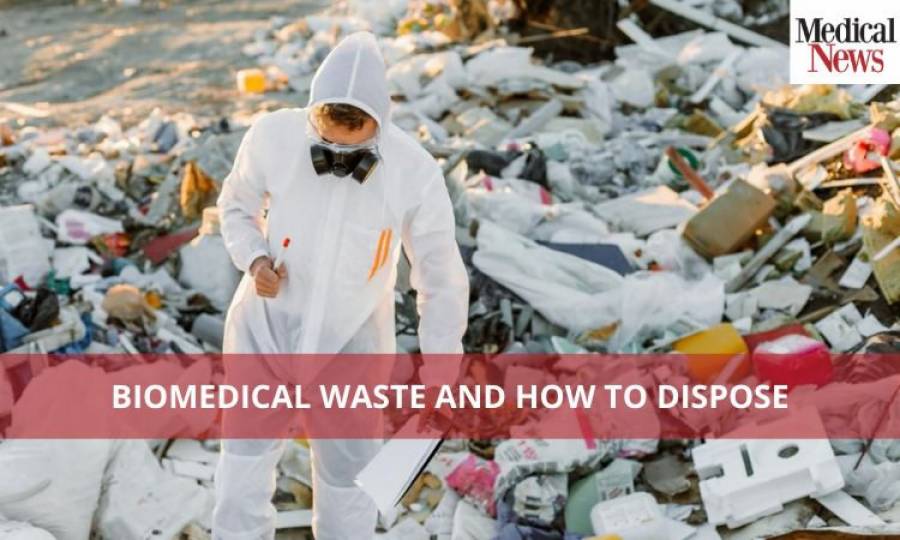Biomedical Waste in Pakistan and How to Dispose

Ill-management of biomedical waste has resulted in an imminent threat not only to the environment but directly affecting the general population worldwide. Biomedical waste includes all infectious waste, sharps, pharmaceutical waste etc., that is produced by healthcare or diagnostic procedures. The existing biomedical waste management system in Pakistan is poorly implemented and lacks infrastructure, which poses a significant risk to the socio-economic well-being of Pakistan.
Consequences and Risks Associated With Biomedical Waste
Persons who are exposed to biomedical waste are potentially at risk of various diseases. Besides doctors, nurses and other auxiliary staff of the hospital, the general population are at risk of health consequences. The most common risks associated with biomedical waste include risk of trauma, contagious infections, chemical risk and risk of fire or radioactivity. Medical waste contains a wider variety of micro-organisms than general household solid waste and therefore needs to be contained in a separate environment and treated as per protocol.
Mercury is found mainly in thermometers, dental alloys, certain types of batteries, and electronic components. Healthcare facilities are one of the main sources of mercury in the atmosphere due to the incineration of medical waste.
Antibiotics and their metabolites are excreted in the urine and faeces.
Hospital sewage has the potential to contain more drug metabolites, and this contributes to the emergence of antibiotic-resistant strains of pathogens.
All these and more examples are just of few consequences of improper management of Biomedical waste.
Pakistan’s Existing Biomedical Waste Management
Internationally developed countries follow strict protocols for hospital waste management. That generally includes the generation of waste followed by segregation, collection, storage and then further transport of the waste for treatment.
In Pakistan, the relative practice of burial and random dumping on uncontrolled sites can have a directly impacted environment and the health of the population. Lots of factors are involved in the mismanagement of biohazard waste in Pakistan, mainly lack urban planning, hurdles in the provision of a proper healthcare system, inadequate waste management equipment and lack of awareness among medical staff that contribute to the problem.
Way Forward in Curbing the Problem
The utmost prime duty in curbing biomedical waste is to raise awareness among the population. Adaptation and partnership with global waste managing companies will help educate us about new and advanced technologies required in hospital waste management.
Moreover, segregation of hazardous and non-hazardous waste is fundamentally important in order to encourage further treatment of waste accordingly.
The movement of waste should be strictly monitored by law enforcement. Radioactive and cytotoxic waste should be handled carefully and stored in leak-proof containers with proper warning labels. Plants should be installed to convert waste into energy rather than dumped into soil and further increase soil contamination.
Though one method widely in practice for waste elimination, the incineration of waste has been inadequate and doing so of unsuitable materials results in pollutants being released into the atmosphere and forming ash residue. However, Modern incinerators operating at 850-1100 °C, fitted with gas-cleaning equipment, comply with international standards for gas emission.
A centralized response unit should be formed in order to monitor waste management more closely, thus acquiring responsibility implementation of rules and regulations.
Taking one step at a time can gradually make a difference and improve our biohazard and general waste management system.
Trending
Popular
Sindh pledges vigorous action to prevent poliovirus transmission
-
PMA stresses health equity on World ...
04:08 PM, 9 Apr, 2024 -
Dow University’s new rabies vaccine ...
12:18 PM, 28 Mar, 2024 -
IRD role lauded in advancing ...
02:53 PM, 12 Mar, 2024 -
Over one billion people worldwide ...
09:48 AM, 5 Mar, 2024




